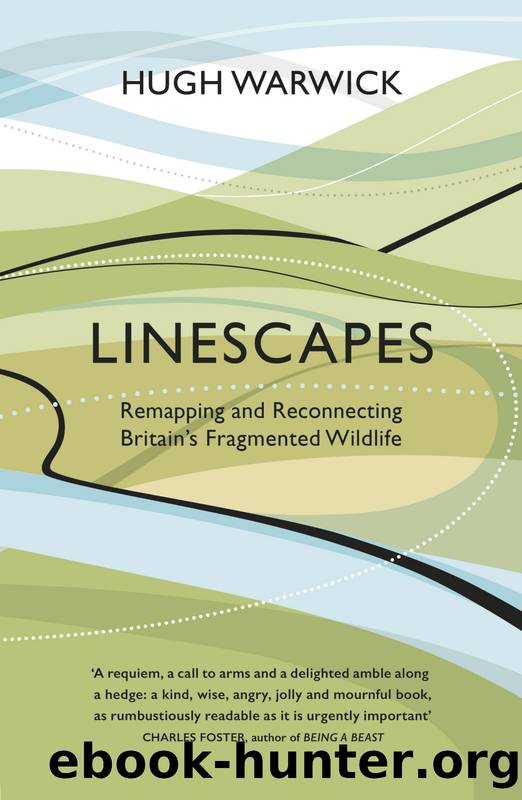Linescapes by Hugh Warwick

Author:Hugh Warwick [Warwick, Hugh]
Language: eng
Format: epub
Publisher: Random House
Published: 2017-05-04T00:00:00+00:00
The water of the canal was often milky and sterile, and had the rather alarming capacity to burn if a cigarette was tossed into it. Roy described how specialist fire crews were needed to put out the flames. âBoat ropes that had dropped into the water, were when dried likely to spontaneously combust, a known property of phosphorus, I have since found out.â Roy and his team could not remove all of the âTreacleâ, so the sludge that remains was covered in a new layer of silt. Now the canals are blooming, but concerns persist as to what lies beneath them. As for the Rattlechain Lagoon â one hopes that the owners of the houses recently built nearby are aware of the areaâs rather grubby history.
This kind of polluted history from the West Midlands was what had so effectively informed my prejudice against canals, a prejudice that was taking quite a knock from my time out on Tinker. Environmental rules mean that unrepentant dumping of toxic waste is, if not a thing of the past, at least a far rarer occurrence. But we should remain wise to the words of Rolt: in Navigable Waterways he wrote that we live in âa world of which we now have so much more knowledge and so much less respectâ.
But the whole way we think about canals has changed. Quite how dramatic this shift has been I had not appreciated until Jo said, âTry and imagine the M6 motorway in 100 years being used by pedestrians and cyclists for pleasure. That is how big a deal this change would be to anyone from the early nineteenth century. These were the motorways of the Industrial Revolution.â
Now, at walking pace again, it is time to let minds expand and see more deeply what is around us. How can we take in our world at 70 mph? The blur of light that approximates to the reality is all we have to go on, our brains compressing and approximating all the time. Now they can relax and absorb detail. Thinkers of the world recognise that walking is good for thinking. Wordsworth famously shifted into the transcendent as step followed step â the very activity of moving required that thoughts usually devoted to the background chatter of the mundane be overwhelmed by the needs of knees, thus freeing up the brain to wander.
I had always assumed that this was to do with the act of walking. But time spent on a narrow boat made me realise it has as much to do with the speed you move through the landscape. During one stretch on the Grand Union we had over an hour of plain sailing â no locks, nothing to interfere with the reverie that swoops over you as your eyes shift focus into the middle distance and your mind catches hold of ideas that walk by the boat.
Or you see a kingfisher. Then, suddenly, there is an electric thrill to match the flash of electric blue. I had
Download
This site does not store any files on its server. We only index and link to content provided by other sites. Please contact the content providers to delete copyright contents if any and email us, we'll remove relevant links or contents immediately.
Man-made Catastrophes and Risk Information Concealment by Dmitry Chernov & Didier Sornette(6007)
The Revenge of Geography: What the Map Tells Us About Coming Conflicts and the Battle Against Fate by Kaplan Robert D(4076)
Zero Waste Home by Bea Johnson(3833)
COSMOS by Carl Sagan(3618)
Good by S. Walden(3548)
In a Sunburned Country by Bill Bryson(3537)
The Fate of Rome: Climate, Disease, and the End of an Empire (The Princeton History of the Ancient World) by Kyle Harper(3058)
A Wilder Time by William E. Glassley(2859)
Camino Island by John Grisham(2796)
Organic Mushroom Farming and Mycoremediation by Tradd Cotter(2689)
The Ogre by Doug Scott(2679)
Human Dynamics Research in Smart and Connected Communities by Shih-Lung Shaw & Daniel Sui(2500)
Energy Myths and Realities by Vaclav Smil(2488)
The Traveler's Gift by Andy Andrews(2458)
9781803241661-PYTHON FOR ARCGIS PRO by Unknown(2365)
Inside the Middle East by Avi Melamed(2352)
Birds of New Guinea by Pratt Thane K.; Beehler Bruce M.; Anderton John C(2253)
A History of Warfare by John Keegan(2240)
And the Band Played On by Randy Shilts(2199)
